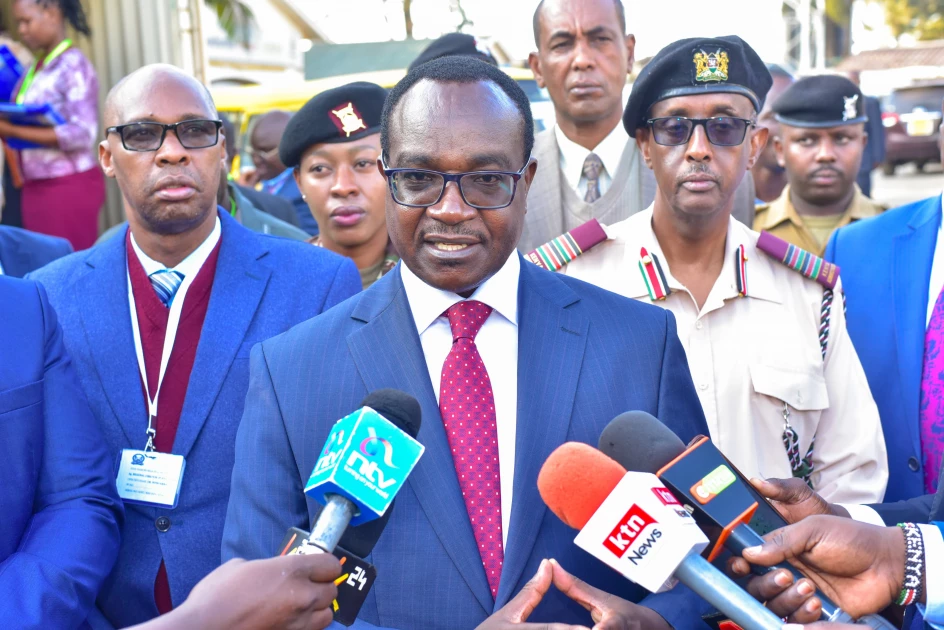The Kenya Certificate of Secondary Education (KCSE) theory examinations began on Monday, November 4, following a series of practical tests in multiple subjects. Education Cabinet Secretary (CS) Julius Ogamba oversaw the start of this phase, speaking from the Kenya National Examinations Council (KNEC) Container at Kibra’s Deputy County Commissioner's office. During his address, CS Ogamba emphasized the government’s commitment to upholding the integrity of this year's exams, detailing stringent measures to prevent cheating and irregularities.
CS Ogamba warned of strict consequences for anyone caught engaging in malpractice and outlined the strategies implemented to counter cheating. "The government has taken steps to curb any attempts at malpractices and irregularities through various innovative approaches. These include personalization of the examination papers and securing all mobile phones in an examination center while exams are in progress,” he explained.
One new strategy includes close monitoring of social media platforms to swiftly identify and address any signs of exam leaks or malpractice discussions. This step is part of a comprehensive approach to ensure fair testing conditions and protect the integrity of the KCSE examination.
In his remarks, CS Ogamba also appealed to parents and teachers, highlighting their role in safeguarding the examination process. He emphasized that a significant portion of exam cheating is often funded or facilitated by adults associated with the students, urging them to allow students to take exams independently. "Malpractice ultimately undermines the value of students’ hard work and damages the credibility of their certificates," Ogamba noted.
He further emphasized that mobile phones are prohibited in all examination centers, cautioning that any attempt to retain a phone could lead to disciplinary action. To enforce accountability, special courts have been established to handle exam-related offenses, ensuring a faster judicial process.
The government has adopted a multi-agency approach involving the Ministry of Education, the Ministry of Interior and National Administration, the Ministry of Information, Communication, and the Digital Economy, and the Teachers Service Commission. According to CS Ogamba, this coordinated effort underscores the government’s resolve to deliver credible national examinations free from malpractice, reinforcing a culture of merit and hard work.

